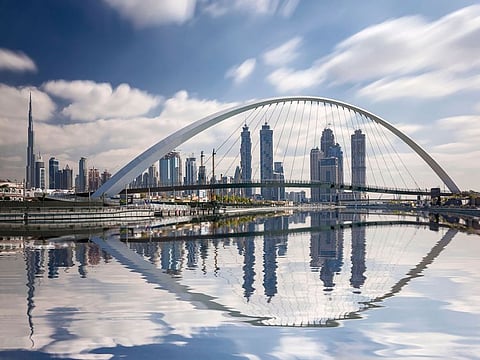Revealed: UAE is top destination for US, UK tourists
A new study also revealed Abu Dhabi and Dubai are two most expensive cities in GCC

Dubai: The UAE remains a popular choice of destination for international travelers, according to a new study.
The news comes after another study showed Abu Dhabi and Dubai are two most expensive cities in the GCC. Clearly, the rise in cost of living is not proving a hindrance for international travelers who are flocking the country in order to get a holiday.
According to data revealed by Expedia Group – numbers taken from the third quarter of 2019 – the UAE remains a popular choice for international travelers and the top 10 feeder markets were the USA, UK, France, India, China, Ireland, Australia, Germany, Italy, and Brazil.
The report said there was a significant rise in number of visitors from Brazil and Portugal into the UAE, and the reasons could be attributed to the Emirates codeshare partnership with LATAM Airlines and direct flights to Porto, both announced earlier this year.
According to Expedia Group, although travelers from the USA, the UK, and France topped the list for overall demand into the country, travelers from China showed a robust 50 per cent year on year rise in number.
The latest statistics also showed a surge of arrivals into Dubai during the summer months, resulting in 12.08 million international overnight visitors in the first nine months of 2019. Dubai’s Department of Tourism & Commerce Marketing (Dubai Tourism) revealed the emirate welcomed 2.89 million Indian tourists in 2018. This number is estimated to grow to 5.29 million by 2024, according to the report by Colliers International done in partnership with Arabian Travel Market (ATM).
Expensive cities
Meanwhile, another recent study by ECA International put Abu Dhabi and Dubai as two most expensive cities in GCC, both cities now are in the top 50 most expensive locations to live in.
Both Dubai and Abu Dhabi saw their ranking jumping from 49th to 35th and 54th to 40th, respectively.
"Countries in the GCC rose an average of 18 places in the rankings thanks mainly to the strength of their currencies, most of which are pegged to the US dollar, making them more expensive for visitors from many other countries," says Steven Kilfedder, production manager at ECA International.
A recently-released research by InterNations also revealed Abu Dhabi was ranked at the 15th position among 82 cities in the world for expats to live and work in, due to factors such as the ease of settling in, the quality of its urban living, and its financing and housing index. Dubai placed 34th on the cities list, while the UAE placed 40th on the list of 64 countries ranked for their attractiveness by expats.
According to ECA International, Middle Eastern locations, on average, have increased in the rankings by 11 places. Abu Dhabi has seen the biggest increase in the last five years, having increased a total of 126 places since 2014. The UAE capital was 166th in 2014. Muscat has increased the most in the last year, up 37 places to 97th most expensive place, entering the top 100 first the first time
Globally, Turkmenistan's capital Ashgabat remains the most expensive city in the world for expats for a second year running, mainly due to a combination of high inflation and a black market currency rate far weaker than the official exchange rate making purchases particularly expensive for expatriates in their home currency unless they can access the illegal black market exchange rate.
Tokyo stays second costliest city while followed by three Swiss cities - Zurich, Geneva and Basel - Hong Kong, Bern, Yokohama, Tel Aviv and Nagoya.
The surveys compare a basket of like-for-like consumer goods and services commonly purchased by assignees in over 480 locations worldwide. Certain living costs, such as accommodation rental, utilities, car purchases and school fees are usually covered by separate allowances.





